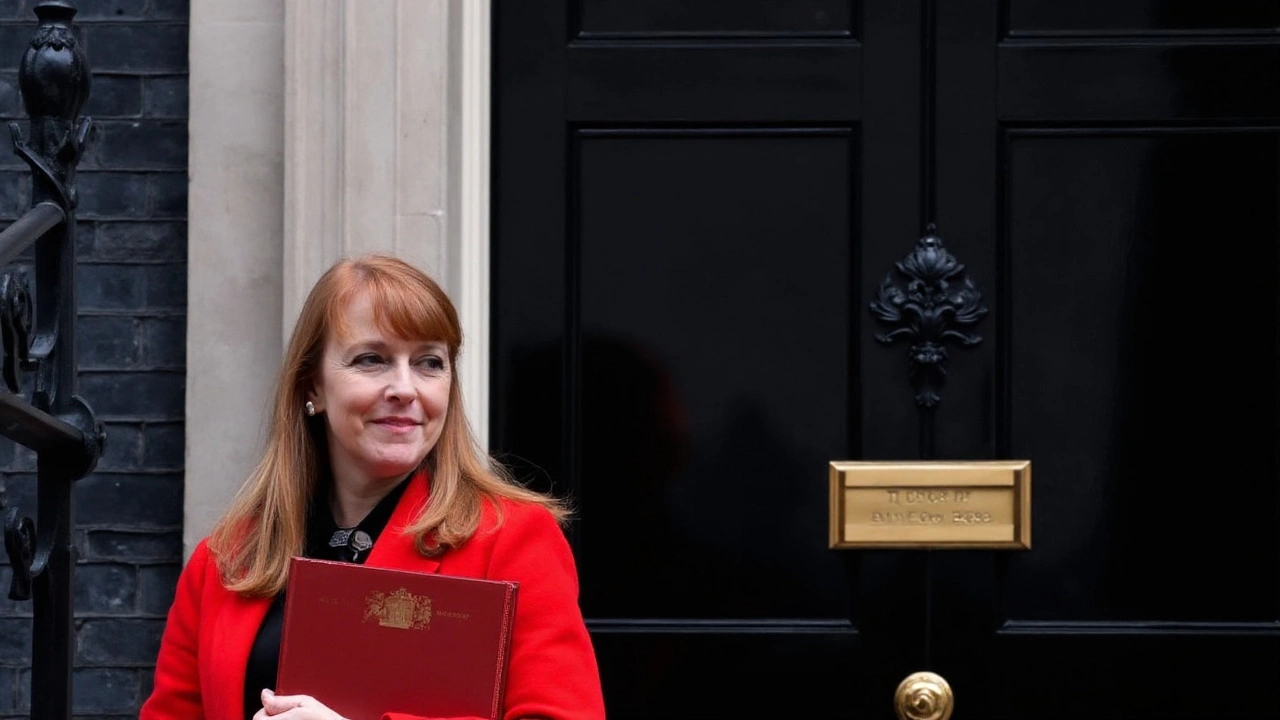Stamp Duty Row: Angela Rayner Resigns After £40,000 Underpayment on Hove Flat
 Sep, 7 2025
Sep, 7 2025
A £40,000 tax mistake that ended a deputy premiership
A sitting Deputy Prime Minister has quit over a £40,000 tax shortfall on a home purchase. Angela Rayner resigned from government on 5 September 2025 after confirming she underpaid stamp duty on an £800,000 flat in Hove. She had paid £30,000 at the time of purchase in May, treating the property as her main residence. Under the rules for additional properties, the bill should have been £70,000.
Rayner said she acted on legal advice and believed the standard rate applied. But a technical quirk in property tax law — involving trusts and how the interests of under-18s are treated — meant the Hove flat counted as a second home. Once that was clear, she commissioned a barrister’s review, notified the Prime Minister’s independent adviser on ministerial standards, and contacted HMRC to make good the shortfall.
The case arrived at a politically awkward moment. As Secretary of State for Housing, Communities and Local Government as well as Deputy Prime Minister, Rayner helped shape policy at a time when the government was weighing changes to property taxation. That made a personal underpayment, even if accidental, impossible to ignore. Her resignation removes one of the most senior figures in the Starmer ministry and injects fresh volatility into Westminster.

How a family trust turned a new home into a 'second home'
The row turns on a family house in Ashton-under-Lyne, Greater Manchester, and a trust set up for Rayner’s disabled son. Rayner and her then husband, Mark, bought the Ashton property in 2016. In 2020, following an NHS compensation payout, they created a trust to support their son’s lifelong care.
After the couple divorced in 2023, the ownership was restructured: half of the Ashton home was placed into the trust, while each parent held 25%. Early in 2025, Rayner sold her remaining 25% share to the trust, raising a £162,500 lump sum that she used as the deposit for the Hove flat.
Here’s the crucial part. For England’s property tax, when a minor owns property through a trust, the law can treat the parents as if they also own that interest. In other words, even though Rayner had sold out of her personal share, her son’s beneficial interest — because he is under 18 and within a family trust — still counted against her. That made her Hove purchase an “additional dwelling,” triggering the higher-rate surcharge.
Rayner initially paid at the standard main-residence rate, which came to £30,000 on an £800,000 purchase. Under the higher rate for second homes, the total due was £70,000. The £40,000 gap is what she has now told HMRC she will settle. She has also referred herself to the independent adviser on ministerial standards, saying she wants full transparency around the misstep.
To the public, this might look like a paperwork slip. To tax lawyers, it is a classic edge case. UK rules on additional dwellings blend main-home tests with anti-avoidance measures. Trusts for minors sit squarely in that anti-avoidance area, because without those provisions, families could move assets into a child’s name and avoid higher rates when they buy again. The policy logic is clear, but it often catches people who think they have tidied up their interests properly.
Rayner’s situation is messier still because of the roles she held. As Housing Secretary, she oversaw housing policy and local government finance. As Deputy Prime Minister, she was a face of rectitude for a government that pledged to clean up standards in public life. That’s why, even absent any suggestion of deliberate wrongdoing, she stepped down once the underpayment was confirmed.
Here’s the timeline that led to her exit:
- 2016: Rayner and her then husband buy the Ashton-under-Lyne property.
- 2020: After an NHS compensation award, they set up a trust for their disabled son’s care.
- 2023: Divorce. Ownership is restructured — 50% of the house into the trust; each parent keeps 25%.
- Early 2025: Rayner sells her 25% share to the trust, receiving £162,500, later used as a deposit.
- May 2025: She buys an £800,000 flat in Hove, paying £30,000 in stamp duty on a main-home basis.
- Late August 2025: Media scrutiny intensifies over her tax treatment and property holdings.
- 3 September 2025: A barrister’s review confirms underpayment; she alerts the standards adviser and HMRC.
- 5 September 2025: Rayner resigns as Deputy Prime Minister and Housing Secretary.
Rayner maintained several addresses — her constituency base in Ashton-under-Lyne, a grace-and-favour flat at Admiralty House in central London, and the newly bought Hove flat. Grace-and-favour accommodation does not affect purchase tax calculations. What mattered was the trust-linked interest in the Ashton property on behalf of her son, which pushed the Hove deal into the “additional dwelling” category.
What happens now? HMRC will assess the outstanding amount, plus interest and possibly a penalty. In practice, where a taxpayer comes forward, pays up, and can show they relied on professional advice, penalties can be reduced or waived. That’s not guaranteed, but prompt disclosure is usually better than a protracted argument. On the ethics side, the independent adviser on ministerial standards will look at whether any part of the Ministerial Code was engaged and whether her decision to resign settles the issue.
The politics are unavoidable. Property taxes are back on the agenda as the government searches for revenue to stabilise public finances. Any suggestion that senior figures mishandled their own bills undermines the case for reform. Opposition parties have already pressed the point that a Housing Secretary falling foul of housing-related tax rules looks particularly jarring. For Labour, the risk is that a technical tax issue becomes a trust-and-standards story at the exact moment it wants the conversation to be about growth and services.
There is also the lived reality of families using trusts for disabled dependants. These structures are set up to protect vulnerable beneficiaries, not to game the system. Yet the way tax rules treat parents of minor beneficiaries can have sharp edges, especially when a family changes shape after divorce. Rayner’s case is a reminder that modern households and legacy tax frameworks often clash in awkward ways.
It’s worth noting that tax controversies have ended ministerial careers before. In 2023, the Conservative Party chairman lost his job following a dispute with HMRC over a settlement related to a past business sale. Westminster’s standards landscape has grown less forgiving as public patience for special pleading has worn thin.
For homebuyers, the practical takeaway is simple: if you, your spouse, or your minor children have any interest in another property — including through a trust — expect the higher-rate rules to bite. The definition of “ownership” is wider than most people assume, and selling a personal stake does not always reset the clock if a dependent child still benefits from a related property. These are the cases where a specialist tax lawyer earns their fee.
Rayner remains the MP for Ashton-under-Lyne. Her departure from the front bench forces a quick reshuffle and leaves Labour to steady the message on tax and housing. She has said she will cooperate fully with the standards process and HMRC. The bill itself is not the largest scandal Westminster has seen. But the symbolism — a senior minister tripped up by a tax rule she should have been in a position to anticipate — will linger.